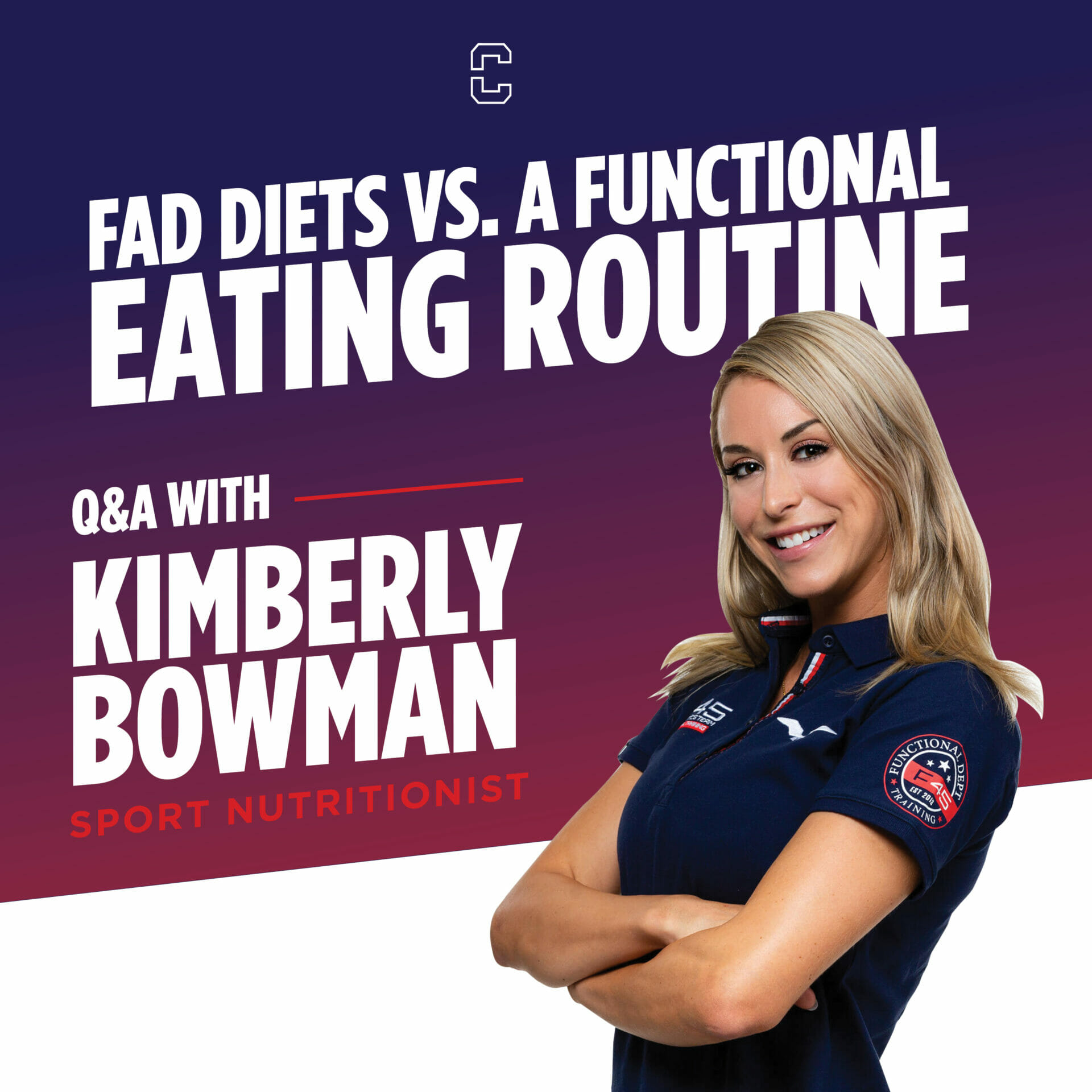It’s time to break free from the fad diet habit and make way for a future of functional nutrition. While certain fad diets may offer short-term weight loss, they rely on calorie restriction (dieting) and many lack the nutritional evidence to support sustained benefits for fat loss. We are constantly exposed to online ads marketing the newest and trendiest fat loss solutions, which can make it challenging not to get caught up in a fad diet frenzy. The problem is that these fad diets can lead to what is known as yo-yo dieting, or temporary minimal weight loss that is regained before starting the next diet.

F45 Sport Nutritionist Kim Bowman recommends steering clear of fad diets and opting instead for a functional approach to nutrition, with an emphasis on food quality over calorie restriction. Below, she answers some of the most common questions about why diets aren’t recommended with a goal of long-term, sustainable fat loss:
- What’s the main difference between fad diets and functional nutrition?
While fad dieting emphasizes calorie restriction and the elimination of whole food groups, a functional approach to nutrition focuses on making lifestyle modifications to eating behaviors, including small but regular adjustments to improve the overall quality of food consumed. Functional nutrition, unlike fad dieting, aims to enhance awareness of why we need more nutrient-dense foods in our diet.
- Why isn’t fad dieting a practical approach to fat loss?
Restricting your body of certain nutrients by eliminating food groups is not only impractical in the long term, but it means you are also cutting out necessary vitamins and minerals for optimal health. The problem is that without any credible research validating a diet, fat loss claims are not valid and any long-term health benefit is unknown. We need all macronutrients (carbs, fats, and proteins) for optimal metabolic and physiological function, and without these, we may experience hormonal-induced cravings post-diet. In functional nutrition, small changes to eating habits in order to enhance physiological processes is a more sustainable approach to fat loss.
- Why is functional nutrition a more sustainable approach for fat loss and overall health?
Functional nutrition is a balanced approach to eating with emphasis on incorporating a variety of quality macronutrients and micronutrients. A healthy balance of carbs, fats, and proteins ensures that we obtain all the necessary vitamins and minerals that our body requires for optimal physical and mental function. These nutrients are essential to ensure that our body can adapt to a new, healthier way of eating by helping to lower inflammation and improve metabolic efficiency.
- What are the core concepts of functional nutrition?
Functional nutrition focuses on an individualized approach to healthy eating in order to create lifelong health benefits. This approach focuses on quality food consumption by encouraging regular consumption of nutrient-dense foods—without macronutrient restriction—while avoiding those that provide no substantial nutritional benefit.
Small yet consistent changes to daily eating habits make it easier to adopt a healthier eating pattern that is sustainable in the long term. For example, a small change may be swapping out sugary soda for water or sparkling water. When entire food groups are excluded all at once, drastic hormonal changes often occur, leading to extreme cravings once the diet period has finished.
- Tips on how to establish a functional approach to nutrition and healthy eating:
- Focus less on calorie restriction and more on quality food consumption.
- Start by making small yet consistent changes. Replace empty calories with nutrient-dense foods, such as swapping whole grains for processed white bread/cereals.
- Keep a food journal. Writing down our daily food intake 1) makes it easier to stay accountable to a healthy eating routine and 2) helps us become more mindful of any cravings or hunger cues.














